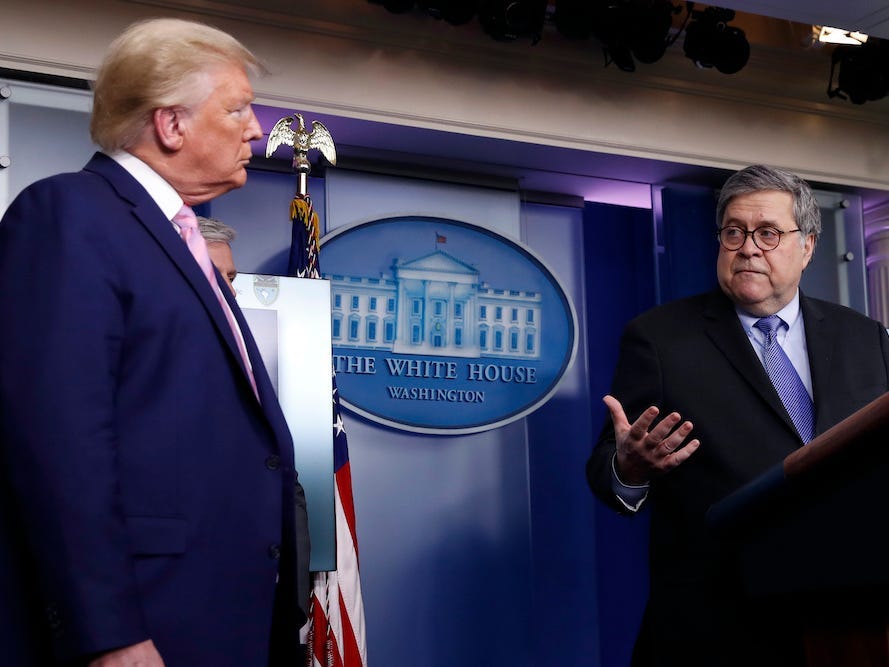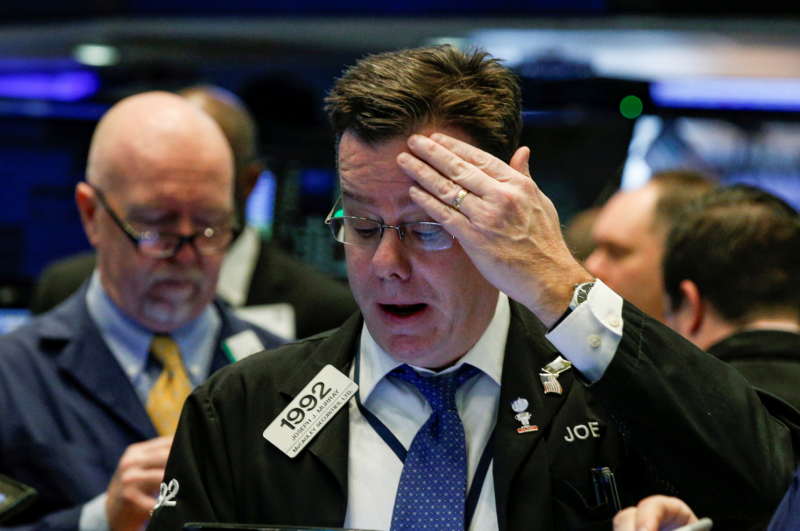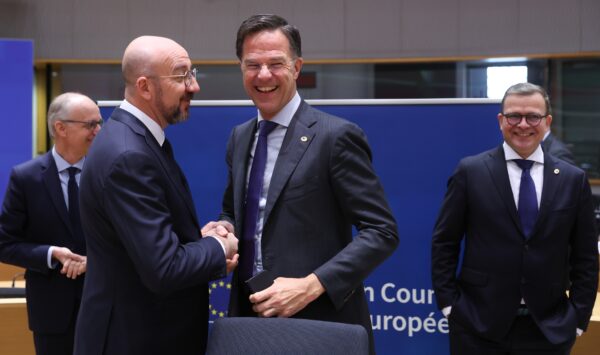
AP Photo/Alex Brandon
- The DOJ’s top election crimes official resigned Monday after Attorney General William Barr authorized investigations into election fraud in violation of department policy, despite a lack of evidence, The New York Times reported.
- Barr said federal prosecutors could investigate any “substantial allegations” of election-related fraud before states have certified results, contradicting longstanding DOJ guidelines meant to prevent the department from interfering with elections.
- Barr’s decision drew swift condemnation from legal experts and former DOJ officials who said the move undermined the independence of the agency.
- The attorney general’s decision comes as President Donald Trump refuses to concede the election and he and his loyalists make unfounded allegations of widespread voter fraud and election-rigging.
- Barr has repeatedly backed Trump’s baseless claims of voter fraud and recently rolled back DOJ rules aimed at preserving political neutrality.
- Visit Business Insider’s homepage for more stories.
The Justice Department’s top official in charge of investigating election crimes resigned Monday after Attorney General William Barr released a memo ignoring longstanding policy meant to prevent the DOJ from interfering in elections.
Richard Pilger, the director of the Department of Justice’s elections crime branch, stepped down just hours after Barr sent a memo to federal prosecutors authorizing them to open investigations into “substantial allegations” of potential election fraud before states have certified their results, which violates department policy, The New York Times reported.
“Having familiarized myself with the new policy and its ramifications I must regretfully resign from my role as director of the Election Crimes Branch,” Pilger wrote in an email to colleagues, according to The Times.
The report said Pilger, who oversaw the DOJ’s investigations into potential voter fraud, would step into a “nonsupervisory” role.
Barr’s memo, which contradicted longstanding DOJ policy meant to prevent the agency from improperly swaying or undermining the integrity of elections, drew swift backlash from election law experts and DOJ veterans who defended Pilger’s reputation and excoriated Barr’s decision as politically motivated.
"Given the kinds of unsupported claims Barr has made about election fraud before, I am concerned about his potential meddling in the electoral process for political reasons," Rick Hasen, an election law and administration expert at the University of California at Irvine, told Business Insider.
"Richard Pilger is a respected apolitical attorney who has been a federal corruption prosecutor for decades," Noah Bookbinder, a former DOJ corruption crimes prosecutor and director of the nonprofit Citizens for Responsibility and Ethics in Washington, tweeted Monday, adding: "His resigning in protest makes clear to me that something very wrong indeed is happening here."
Barr said that nothing in his memo "should be taken as any indication that the department has concluded that voting irregulation have impacted the outcome of any election" and that "specious, speculative, fanciful or far-fetched claims should not be the basis for initiating federal inquiries," according to The Wall Street Journal.
Nonetheless, Stephen Vladeck, a law professor at the University of Texas, told The New York Times that Barr's decision to reverse DOJ's policies on election noninterference "when there is no such evidence — and when the president's clear strategy is to delegitimize the results of a proper election — is one of the more problematic acts of any attorney general in my lifetime."
In the weeks leading up to Election Day, the DOJ rolled back another decades-old election non-interference policy, and in September, Barr repeated false election fraud claims to CNN's Wolf Blitzer, before admitting that he had no evidence to support the claim.
Barr's decision Monday came after President Donald Trump and his allies, including his personal lawyer Rudy Giuliani, circulated widely discredited claims of voter fraud, election-rigging, and a vast conspiracy between the Democratic Party and "big media" to tilt the 2020 election in Joe Biden's favor.
As Business Insider has reported, there is no evidence of widespread voter or election fraud, and this election was among the safest and most secure because of the use of paper ballots and voting machines with verifiable paper trails.










